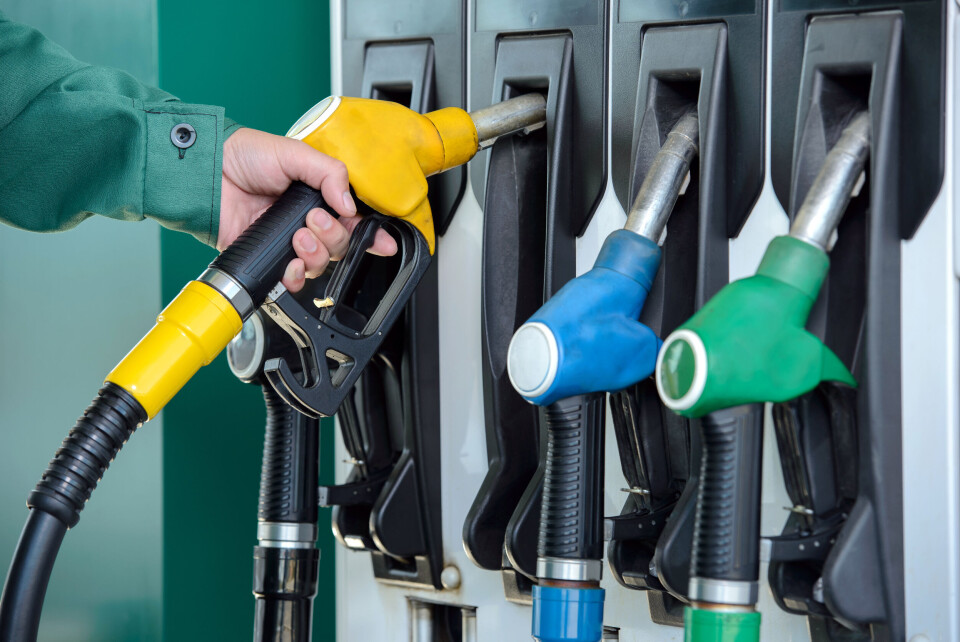-
High demand for relaunch of Ryanair’s London - France route
Many UK residents own second homes in region
-
Visa delivery policy review ordered by French PM
'France welcomed more than half a million additional immigrants in 2024 - an unprecedented level', said François Bayrou
-
Which fruits, vegetables and fish are in season in France this April?
Strawberry season begins, compensating for end of winter vegetables
Why diesel prices are falling but petrol prices still rising in France
A less panicked market and tax differences may help to explain the differing costs, a fuel expert has said

Petrol prices in France rose significantly but diesel prices dropped last week, with diesel now cheaper than petrol for the first time since March, as the market settles in comparison to spikes earlier in the year.
The latest figures from the ecology ministry (May 20) showed that diesel prices dropped by 2.6 centimes, reaching €1.852 per litre, in a decline continued from the week before.
In contrast, unleaded petrol prices (95-E10, SP95 and SP98) rose by 8-9 centimes per litre (week on week), reaching an average of €1.9386 per litre on average across France. This was the fifth consecutive weekly rise.
This means that diesel is approaching a level not seen since the start of March, when it was below the symbolic threshold of €1.8 per litre. In contrast, petrol hit a peak at the start of March, with a high of €2.0286 per litre on March 11.
The government’s introduction of a 15 to 18 centime refund for each litre, which came in on April 1, enabled prices to go down significantly last month, before rising again.
Read more: Fuel prices: eight questions on 18c refund starting in France in April
But why is diesel going down in relation to petrol?
Less panicked market
People appear less worried about a diesel shortage now compared to in March, Olivier Gantois, president of l'Union français des industries pétrolières (UFIP) told Actu.fr.
Mr Gantois also explained that previous diesel prices had been “an anomaly” that had arisen “due to the importance of Russian diesel on the European Union and French markets, but also to the nervousness of the markets with the European threat of an embargo on Russian diesel”.
Now, he said, Europe is growing ever more “confident that we will manage without Russian oil”, despite a lack of EU agreement in recent weeks over the possibility of an embargo.
‘Market fatigue’
A certain “calm” has returned to the fuel markets, Mr Gantois said. He explained: “There is a kind of exhaustion in the markets [in contrast to the panic] at the beginning of the crisis.”
This calm is partly due to the government’s introduction of the 18 centimes reduction per litre on fuel costs, he said.
‘Driving season’
Diesel prices have dropped below petrol prices partly because petrol prices have risen so significantly.
This is because the cost of a barrel of Brent crude oil (the barometer used) affects the price of petrol more than diesel. In the past week, the price of one barrel has risen by USD$5, with consequential rises for petrol prices.
Mr Gantois also said that the so-called ‘driving season’ has helped to push petrol prices up worldwide.
‘Driving season’ refers to the global trend of drivers getting out more over the holidays and during nice weather, meaning the demand for fuel increases.
He said: “Every year, driving season pushes up the price of Super (now Unleaded).
“In the United States, driving season is an influential phenomenon. The majority of vehicles on the other side of the Atlantic consume petrol, which explains the rise in these fuels.”
Lower tax
Overall, the price difference between petrol and diesel is “stabilising”, Mr Gantois said, highlighting that the taxes for diesel are 10 centimes less than on petrol.
This is largely reflected in prices; SP95 is traded at €1.97 per litre, while diesel is sold at €1.85, a difference of 12 centimes.
Related articles
French fuel prices on the rise again, topping €2 per litre
New map shows you the cheapest petrol near you in France
























